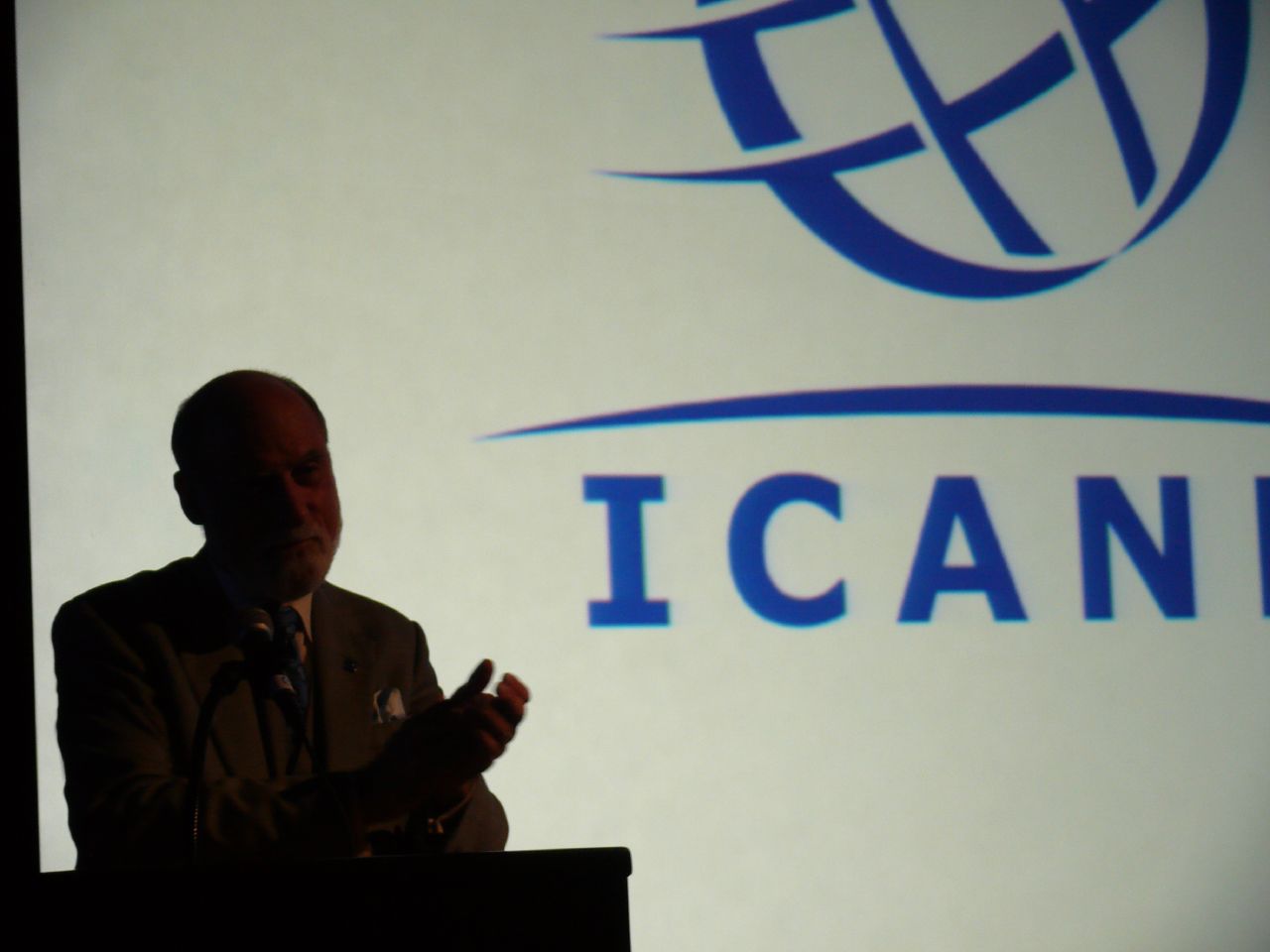John Pecman, the Commissioner of Competition, yesterday advised that the Competition Bureau of Canada is reviewing the Internet Corporation for Assigned Names and Numbers and its administration of the domain name system. In a follow-up email, I was told that the Bureau is investigating ICANN “since they are poised to […]

Vint Cerf at ICANN by Veni (CC BY 2.0) https://flic.kr/p/3KWko9
Internet Governance
The TPP IP Chapter Leaks: U.S. Wants New Regulations for Country-Code Domain Names
My series of posts on the leak of the Trans Pacific Partnership intellectual property chapter has highlighted Canada’s opposition to many U.S. proposals, U.S. demands for Internet provider liability that could lead to subscriber termination, content blocking, and ISP monitoring, copyright term extension, anti-counterfeiting provisions that are inconsistent with Bill […]
Secret Surveillance Puts Internet Governance System at Risk
One year ago, many Internet users were engaged in a contentious debate over the question of who should govern the Internet. The debate pitted the current model led by a United States based organization known as the Internet Corporation for Assigned Names and Numbers (supported by the U.S.) against a government-led, United Nations-style model under which countries such as China and Russia could assert greater control over Internet governance.
The differences between the two approaches were never as stark as some portrayed since the current model grants the U.S. considerable contractual power over ICANN, but the fear of greater foreign government control over the Internet led to strong political opposition to UN involvement.
While supporters of the current model ultimately prevailed at a UN conference in Dubai last December where most Western democracies, including Canada, strongly rejected major Internet governance reforms, the issue was fundamentally about trust. Given that all governments have become more vocal about Internet matters, the debate was never over whether government would be involved, but rather about who the global Internet community trusted to lead on governance matters.
My weekly technology law column (Toronto Star version, homepage version) argues that the Internet governance choice was a relatively easy one at the time, but in recent weeks the revelations about widespread U.S. secret surveillance of the Internet may cause many to rethink their views. Starting with the first disclosures in early June about the collection of phone metadata, the past two months have been marked by a dizzying array of reports that reveal a massive U.S. surveillance infrastructure that covers the globe and seeks access to virtually all Internet-based communications.
Secret Surveillance Puts Internet Governance System at Risk
Appeared in the Toronto Star on July 27, 2013 as Secret Surveillance Puts Internet Governance System at Risk One year ago, many Internet users were engaged in a contentious debate over the question of who should govern the Internet. The debate pitted the current model led by a United States […]
American Girl Loses Battle for AmericanGirl.ca Domain
American Girl, the well-known doll maker, recently lost a domain name battle over AmericanGirl.ca as panelist Bradley Freedman ruled that the company failed to meet the basic requirements in the dot-ca dispute resolution policy. The case should have been a slam dunk as the company’s trademark pre-dates the domain name […]






